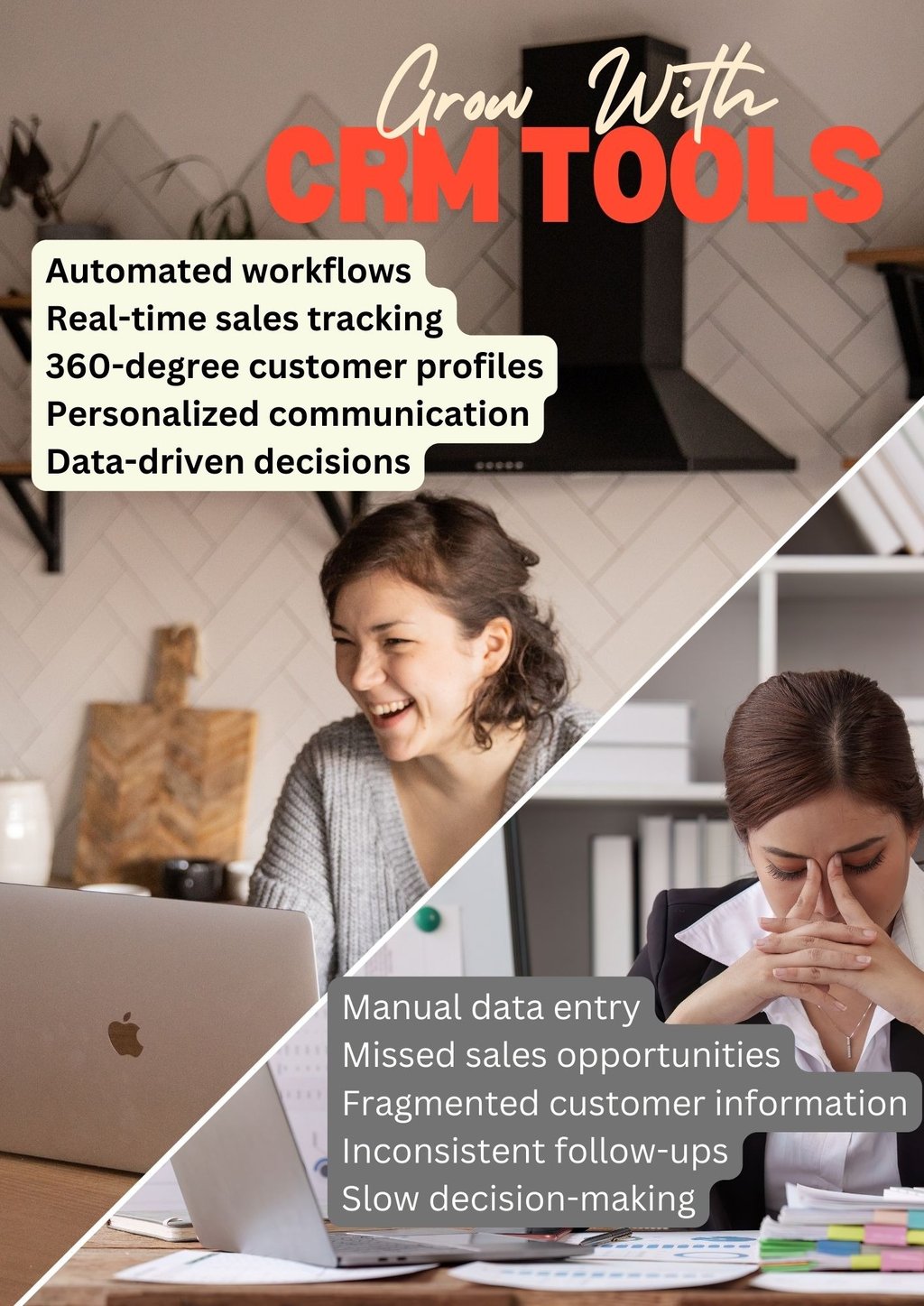

Finding the right Customer Relationship Management (CRM) tool can help you create this and transform how you interact with your customers and manage business relationships.
Here are the top features to prioritize when evaluating CRM tools:
1. Contact and Lead Management
Effective CRM tools centralize your contact information, making it easier to manage leads and customers. Look for features like tagging, segmentation, and activity tracking to organize data and personalize communication effortlessly. For example, you can group customers based on purchase history and send targeted marketing campaigns, increasing conversion rates. This ensures that your e-commerce business can cater to different customer segments effectively.
2. Sales Pipeline Management
Visualizing your sales process is key to closing deals efficiently. A robust sales pipeline feature helps you track leads at each stage, prioritize tasks, and forecast revenue, enabling a clear path from prospect to customer. For instance, if you notice a bottleneck at the "cart abandonment" stage, you can introduce specific strategies like retargeting ads to nudge customers toward completing their purchase. This improves overall sales performance.
3. Task and Activity Tracking
Stay on top of follow-ups and deadlines with task and activity management tools. Automated reminders, task assignments, and progress tracking ensure nothing slips through the cracks, keeping your team accountable. Imagine being able to set reminders for sending post-purchase emails, boosting customer retention. These features help streamline operations and foster better client relationships.
4. Automation Capabilities
Automation saves time and reduces errors. Look for tools that automate repetitive tasks like sending follow-up emails, assigning leads, and updating contact records, allowing your team to focus on high-value activities. For e-commerce, this means automating tasks such as inventory updates or abandoned cart recovery emails, ensuring smooth customer experiences without manual intervention.
5. Reporting and Analytics
Data-driven decisions require insightful reports. A good CRM should provide customizable dashboards and detailed analytics on sales performance, customer behavior, and team productivity to guide your strategy. With analytics, you can identify which products are performing best and allocate marketing spend effectively. This feature equips your e-commerce business with actionable insights for growth.
6. Customization Options
No two businesses are alike, and your CRM should reflect your unique processes. Customizable fields, workflows, and dashboards let you tailor the tool to fit your specific needs. For example, you can create a custom workflow that triggers personalized discount offers for loyal customers, fostering brand loyalty and repeat business. These customizations make your CRM a perfect fit for your e-commerce operations.



